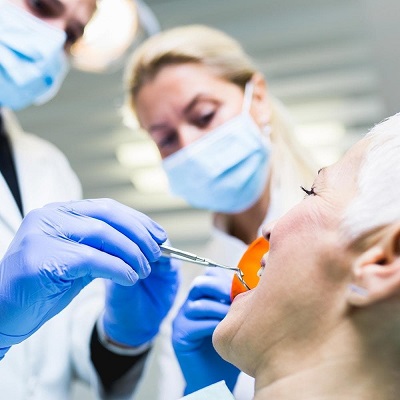When undergoing Best Dental Extractions, it’s essential to focus not only on the procedure itself but also on the recovery process to ensure proper healing. While most extraction sites heal smoothly, complications can arise if the site doesn’t heal as expected. These issues can range from minor discomfort to more severe conditions that may require medical attention. Understanding these scenarios can help you recognize signs of improper healing and take timely action.
Common Signs of Improper Healing:
Persistent Pain and Swelling:
Pain and swelling are normal after tooth extractions, but they should subside within a few days. If these symptoms persist or worsen, it may indicate an infection or a dry socket, requiring immediate attention.
Bleeding That Doesn’t Stop:
Minor bleeding is typical during the first 24 hours after a dental extraction. However, prolonged or heavy bleeding could point to complications, such as a dislodged clot or trauma to the surrounding tissue.
Foul Odor or Taste:
A persistent foul odor or taste in the mouth could signal an infection or trapped debris in the extraction site. These symptoms should not be ignored, as infections can spread if untreated.
Potential Complications of Poor Healing:
Dry Socket: A Common Concern:
A dry socket occurs when the blood clot protecting the bone and nerves at the extraction site becomes dislodged or dissolves prematurely. This condition can lead to intense pain, delayed healing, and increased vulnerability to infections.
Infection Risks:
If bacteria infiltrate the extraction site, it can result in an infection characterized by fever, pus, or swelling of the surrounding tissues. Prompt treatment with antibiotics is often necessary to control the infection.
Jawbone Issues:
In rare cases, improper healing can lead to osteomyelitis, an infection of the jawbone. This serious condition requires aggressive treatment, including antibiotics or even surgical intervention.
Causes of Poor Healing:
Smoking or Tobacco Use:
Smoking significantly hinders the body’s ability to heal after dental procedures. Tobacco restricts blood flow, preventing the formation of a stable blood clot and increasing the risk of infection.
Poor Oral Hygiene:
Neglecting oral hygiene can allow bacteria to accumulate at the extraction site, leading to infections and delayed healing.
Underlying Medical Conditions:
Chronic conditions like diabetes or autoimmune disorders can impair the body’s natural healing process, making it more challenging for the extraction site to recover.
Prevention of Healing Issues:
Follow Post-Extraction Instructions:
Your dentist will provide detailed care instructions following the procedure. Adhering to these guidelines, including avoiding certain foods and maintaining oral hygiene, is critical for successful recovery.
Avoid Strenuous Activities:
Engaging in heavy lifting or strenuous activities can increase blood pressure and potentially dislodge the clot, leading to complications like dry socket.
Maintain a Balanced Diet:
Eating a diet rich in vitamins and nutrients can accelerate the healing process. Soft foods like yogurt, smoothies, and soups are particularly beneficial during recovery.
Treatment for Improper Healing:
Professional Cleaning:
If debris or infection is present at the extraction site, a dentist may clean the area and remove any irritants to promote healing.
Medications:
Antibiotics or anti-inflammatory medications can be prescribed to treat infections or reduce swelling and discomfort.
Surgical Interventions:
In severe cases, additional procedures might be necessary to address issues like infections or bone damage.
When to Seek Medical Attention:
Warning Signs:
If you experience fever, severe pain, excessive swelling, or prolonged bleeding, consult your dentist or healthcare provider immediately. Early intervention can prevent more serious complications.
Regular Follow-Ups:
Scheduling follow-up visits with your dentist ensures that the healing process is on track and allows for the early detection of any issues.
Conclusion:
Proper healing after a tooth extraction is essential for avoiding complications and ensuring overall oral health. By selecting the best dental extractions, following post-procedure care, and recognizing early signs of improper healing, you can significantly reduce risks and recover effectively. Remember, timely action and professional guidance are key to resolving any issues that may arise during the healing process.





Comments